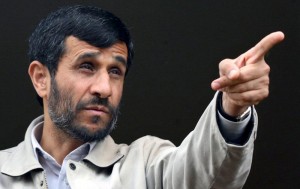Monday
Mar222010
Afghanistan: US Military Holds On to Detainees
 Monday, March 22, 2010 at 6:20
Monday, March 22, 2010 at 6:20  Gareth Porter writes for Inter Press Service:
Gareth Porter writes for Inter Press Service:An initiative to revise the procedures for reviewing the cases of detainees in order to free marginal insurgents and innocent Afghans has run afoul of the interests of officers of the powerful Joint Special Operations Command (JSOC) in defending their role in earlier detention decisions.
A study of U.S. detention policy in Afghanistan by Maj. Gen. Douglas
Stone in early 2009 had concluded that holding hundreds of detainees
without charge in both U.S. and Afghan detention facilities was helping the hardcore Taliban radicalise the vast majority of the detainees.
Stone was reported by The Guardian Oct. 14 to believe that two-thirds of the prisoners held in Bagram were innocent and should be released.
But the new procedures for detainee review put in place late last year
have led to relatively few releases, and the conditions attached to
those releases have rubbed more salt on old Afghan wounds.
Of the 576 detainees whose cases had been reviewed under the new rules by late January, only 66 had been released, Brig. Gen. Mark S.
Martins, deputy commander of "Joint Task Force 435", which has
responsibility for detainee operations in Afghanistan, told IPS in a
recent interview.
In addition, the release procedure requires the detainees and the
village elders vouching for them to sign a paper saying the detainees
had been held on the basis of intelligence linking them to the
insurgency. At a meeting for the handover of some released detainees
in Kabul reported by The New York Times Saturday, village elders from Paktia province refused to sign the paper until the offending language was changed.
The commander of Task Force 435, Navy Vice Admiral Robert S. Harward Jr., defended the intelligence conclusions at the Kabul meeting, but ultimately agreed to allow the elders to sign a paper that rejected
that conclusion. In the future, the document will say that the
detainees were considered insurgents in the eyes of the U.S.,
according to the Times report.
Harward's role at the meeting highlights an apparent conflict of interest that hampers the achievement of the original aim of the Task Force.
Harward had been assistant commander of "Task Force 714", a covert
special operations group that conducted hundreds of targeted raids in
Afghanistan under JSOC, from 2006 to 2008. Those raids filled the U.S.
detention facility at Bagram Air Base with suspected insurgents.
Harward and other present and past JSOC officials, including Gen.
Stanley A. McChrystal, who was then overall commander of JSOC, have an obvious interest in ensuring that the results of case reviews do not
reflect negatively on JSOC's detention decisions.
Putting an officer with such an obvious conflict of interest in charge
of the Task Force - and assigning Martins, a lawyer who is clearly
more sympathetic to detainee rights, as his deputy - has all the
earmarks of a Pentagon compromise.
Read rest of article....




